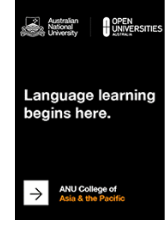A proposal to waive a range of intellectual property measures for COVID-19 vaccines and other health technologies will come before the WTO this week, and Australia must support it, Belinda Townsend writes.
In recent months, inequitable access to COVID-19 vaccines globally has led to ongoing debates at the World Trade Organization (WTO) centred on whether to waive intellectual property rights in order to enable faster vaccine production.
Despite the ramping up that production globally, access has been unequal, with many wealthier countries far ahead of low income countries in vaccination rates.
As a result, over 100 countries have supported a proposal by India and South Africa to the WTO to waive a range of intellectual property measures on health technologies related to COVID-19.
The proposal would allow countries greater flexibility in choosing to deny the granting of patents or other intellectual property on COVID-19 vaccines and other technologies such as personal protective equipment. This would remove legal barriers and allow other vaccine producers to enter the market.
Media reports of the recent 6 July WTO Council meeting suggest that Australia is opposing India and South Africa’s proposal.
While negotiations continue, policymakers should look to recent success in defending access to medicines in the Regional Comprehensive Economic Partnership (RCEP) trade negotiations and look to forge a greater leadership role for Australia in supporting public health.
During the RCEP trade negotiations, Japan and the Republic of Korea proposed intellectual property measures that went beyond those of the WTO, and which could have delayed the entry of new generic (non-originator) medicines to several of the participating countries.
These proposals were strongly opposed by several low and middle income countries including India, Indonesia, and Malaysia, who influenced the Association of South East Asian Nations (ASEAN) negotiating bloc.
Australia often made public statements that it did not want to include any measures that would negatively affect health, including access to medicines.
Like at RCEP, this is an opportunity for Australia to show public health leadership by joining the more than 100 countries supporting the intellectual property waiver for COVID-19 vaccines at the WTO.
A key way it can do this is by mobilising health expertise. Civil society groups and public health experts used the RCEP negotiations to advance several key health issues.
A regional advocacy network was formed, connecting public health experts, trade unions, and health organisations across more than 18 countries in the region.
More recently, health experts through the Public Health Association of Australia, along with the Australian Fair Trade and Investment Network, the Australian Council of Trade Unions, and other community groups have been campaigning for Australia to support the waiver proposal before the WTO.
The Australian Government should seize this moment to draw on Australian public health expertise to push regional action on improving access to COVID-19 vaccines.
Another way Australia could lead on this is by opening up trade negotiations to public health evidence.
Over the eight years of negotiations for RCEP, its processes evolved from an initial closed space comprising only trade negotiators from participating countries, to an invited space where public health experts could make their case through short ‘stakeholder rounds’.
While limited in comparison to greater industry access, these panels enabled space for consideration of health and of access to medicines when it came to the RCEP trade agreement, something the WTO could benefit from too.
Australia also could support greater access for public health expertise at the WTO, including through public health sideline forums during the Council negotiations.
Australia should also promote transparency in trade talks. Public health advocacy around the RCEP agreement largely relied on accessing draft negotiating text that was leaked online, and public health experts and civil society organisations have reported that access to the text of trade agreements is key to assessing their potential health implications.
In response to this lack of transparency, public health experts have called for a range of mechanisms. These include independent health and human rights assessments, formal health forums at the national, regional, and multilateral level, the release of draft texts during and before agreements are signed, and the involvement of parliamentary bodies in scrutinising these texts and canvassing public health experts on potential health impacts.
Australia could also follow in the footsteps of countries like Thailand, who have established formal mechanisms including conducting mandatory health impact assessments of trade agreements. For the WTO case specifically, Australia could push for transparency on the text discussions of the waiver deliberations, and argue for health impacts to be considered in all trade deliberations.
Finally, that access to medicines received strong public support in Australia during the RCEP negotiations should be a lesson for its leaders.
As for the issue of COVID-19 vaccines before the WTO, more than 50,000 Australians have signed a petition calling on the Australian Government to support rolling back these intellectual property rights.
A n essential media poll released on 15 July showed that 62 per cent of Australians believe the government should support the waiver, and more than 150 scholars and lawyers have signed a public letter saying the same.
n essential media poll released on 15 July showed that 62 per cent of Australians believe the government should support the waiver, and more than 150 scholars and lawyers have signed a public letter saying the same.
If the country is serious about public health, it must seize the opportunity to provide global leadership on it, and act quickly to support the waiver proposal at the upcoming WTO General Council meetings on 27 and 28 July.





 From vaccine nationalism to vaccine diplomacy
From vaccine nationalism to vaccine diplomacy
 Vaccinations, borders, and the Delta variant
Vaccinations, borders, and the Delta variant